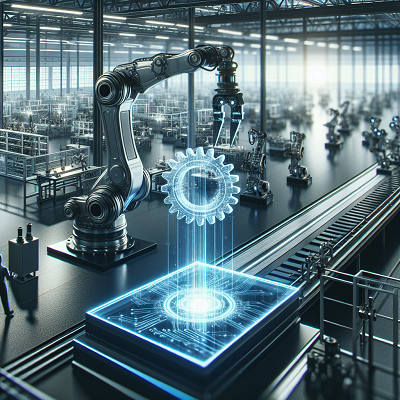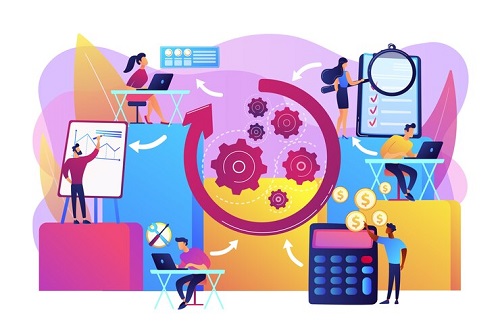Evolving with Tech: Industrial Shifts in the Automation Age
In an era where technology evolves at an unprecedented pace, industries worldwide are experiencing transformative shifts. The advent of Industry 4.0 has ushered in a new age of automation, fundamentally changing how factories and businesses operate. This blog delves into the essence of these changes, highlighting the integration of automation and the synergy between the Internet of Things (IoT) and Artificial Intelligence (AI) in the industrial sector.
The Dawn of Industry 4.0
Industry 4.0 marks a significant milestone in the modern industrial landscape, characterized by the integration of digital technologies into manufacturing processes. This revolution is not just about automation but involves the comprehensive exchange of data through interconnected systems. The significance of Industry 4.0 lies in its ability to enhance efficiency, productivity, and flexibility in manufacturing, paving the way for more responsive and interconnected production lines.
Automation: The Heartbeat of New-Age Factories
Automation has become the cornerstone of modern manufacturing, with its influence permeating various sectors, including automotive, electronics, and pharmaceuticals. For instance, in the automotive industry, automation has led to the streamlined assembly of vehicles, significantly reducing manual labor and improving precision. Case studies, such as the implementation of robotic arms in electronics manufacturing, underscore the profound impact of automation on enhancing productivity and efficiency. These success stories exemplify how automation is reshaping the industrial landscape, making operations faster, safer, and more cost-effective.
The Synergy of IoT and AI in Industry
The convergence of IoT and AI is revolutionizing industrial operations, offering unprecedented opportunities for optimization and innovation. IoT devices collect vast amounts of data from machinery and equipment, which AI algorithms analyze to derive actionable insights. This synergy enables applications such as predictive maintenance, where AI predicts equipment failures before they occur, minimizing downtime and maintenance costs. Similarly, in quality control, AI-driven analysis of data from IoT sensors ensures products meet stringent quality standards, enhancing customer satisfaction. Supply chain optimization is another area where IoT and AI work hand in hand to streamline operations, ensuring timely delivery of materials and products.
Overcoming Challenges on the Path to Automation
Despite the numerous benefits, the journey towards automation and Industry 4.0 is fraught with challenges. High initial costs, the need for workforce adaptation, and cybersecurity concerns are significant hurdles. However, industries can navigate these challenges by adopting strategic approaches, such as phased implementation to manage costs, investing in workforce training to bridge the skills gap, and prioritizing cybersecurity measures to protect against digital threats. By addressing these issues head-on, businesses can fully leverage the advantages of automation and Industry 4.0 technologies.
The Future is Now: What’s Next for Industrial Technology?
As we look ahead, the future of industrial technology promises even more groundbreaking advancements. Trends such as the integration of augmented reality (AR) in maintenance and training, the rise of digital twins for virtual simulation and testing, and the adoption of blockchain for secure and transparent supply chains are on the horizon. To stay competitive in this rapidly evolving landscape, companies must embrace continuous learning and adaptability. Investing in research and development, fostering a culture of innovation, and remaining agile in the face of technological changes are crucial for success in the automation age.
In conclusion, the shift towards automation and Industry 4.0 represents a pivotal moment in industrial history. By embracing these changes and preparing for the future, businesses can unlock new levels of efficiency, productivity, and innovation. The journey may be complex, but the rewards of evolving with technology are immense, heralding a new era of industrial excellence.



